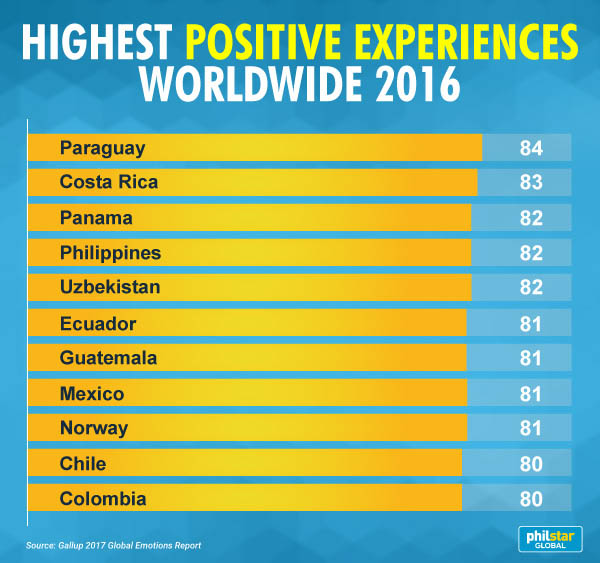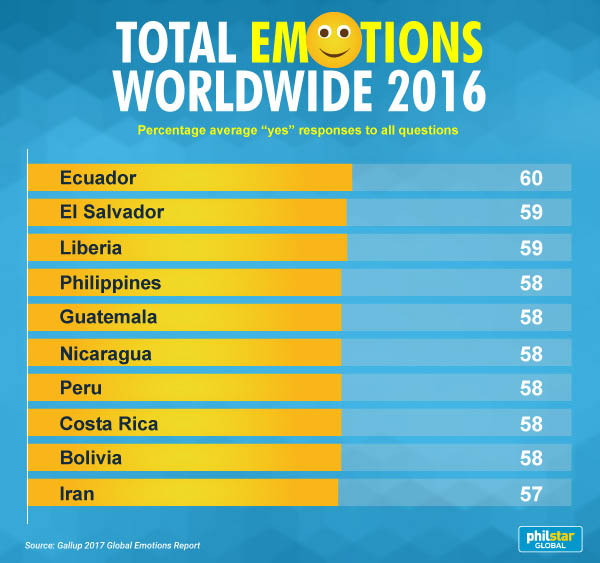Filipinos remain among world's most emotional
June 23, 2017 | 1:18am

In this Nov. 23, 2016 file photo shows Philippine National Police chief Ronald “Bato” Dela Rosa turned emotional during the Senate probe into the killing of Albuera Mayor Rolando Espinosa. The STAR/Mong Pintolo, File photo
LIPA CITY, Philippines (The Filipino Connection) — Maricar Garcia got a small strip of paper near the police station here and thought it was a scented sheet. The two sentences on that strip gave a different "scent": positivity.
"PRAY until your SITUATION CHANGES. MIRACLES happen EVERYDAY," reads the strip.
I am just amazed, Garcia said in Filipino on her post to this city's biggest Facebook group "Lipa City Philippines." "It (the message) gives good vibes especially in this humid weather while I was walking," Garcia said.
This simple showcasing of positivity, at least through the Filipino social media universe, continues to make the Philippines among the world's most emotional societies.
The Philippines tied for third among 142 countries with the highest positive experiences, says an annual survey of people's emotions by the polling firm Gallup. This is while the Philippines, in Gallup's annual Global Emotions Report, remained as Asia's most emotional country for the third year in a row.
The 2017 GER's Positive Experiences Index showed that the Philippines' index score was at 82 percent, tied with Panama. Paraguay was the highest at 84 percent, followed by Costa Rica with 83 percent.

For this specific Index in the said Global Emotions Report, the Philippines is the highest among Asian countries.
The Philippines' 2017 mean score in the Positive Experiences Index was higher than the global mean of 70 percent.
Meanwhile, in the major finding for "Total Emotions," the Philippines was third with 58 percent. Ecuador topped here with 60 percent while El Salvador and Liberia each posted 59 percent.

The "Total Emotions" item of the Gallup Global Emotions survey featured ten questions that make up the survey's positive and negative experiences indices. This indicates which countries are the most and least emotional.
The Gallup's Global Emotions Report contains five questions each for positive and negative indices that help measure "life's intangibles" — pertaining to feelings and emotions — that traditional economic indicators such as gross domestic product cannot or never even intended to capture.
Either the positive or negative experiences index, Gallup adds, "provides a real-time snapshot of people's daily experiences" so as to give indications on the health of societies that economic measures alone cannot capture.
About 149,000 individuals from 142 countries were surveyed in this 2017 Global Emotions Report.
The ten questions were part of the annual Gallup World Poll that annually tracks some of the most important issues like food access, employment, leaders' performances and well being. This Gallup World Poll includes more than a hundred global questions as well as region-specific questions, Gallup explains.
Gallup asks the same questions "every time, in the same way" that allows analysts to trend data annually, or even make direct country comparisons.
On the 149,000 people surveyed worldwide for the 2017 World Poll, and for results based on the total sample of national adults, the Gallup World Poll's margin of sampling error ranged from ±2.1 percentage points to ±5.3 percentage points at the 95 percent confidence level.
The Global Emotions Report's positive experiences set of questions asked questions such as:
• Did you feel well-rested yesterday?
• Were you treated with respect all day yesterday?
• Did you smile or laugh a lot yesterday?
• Did you learn or do something interesting yesterday?
• Did you experience the following feelings during a lot of the day yesterday? How about enjoyment?
The scores for the Positive and Negative Experiences Indices are the mean (or average) scores of "all valid affirmative responses" — multiplied by 100 — for the five questions in each index, Gallup explains.
The Philippines, in the 2016 edition of the Global Emotions Report, was among four countries — together with Ecuador, El Salvador and Guatemala — with the highest emotions worldwide.
In the 2015 edition, the Philippines tied with Ecuador for second (58 percent) behind Bolivia and El Salvador (59 percent each) in terms of the most emotions.
But it was only in the 2017 edition of the Global Emotions Report that the Philippines broke into the top ten of the Positive Experiences Index.
In releasing the 2017 Global Emotions Report, the polling firm notes what it claims to be an important observation in the field of behavioral economics: only 30 percent of an individual's behavior is "rational — (and) the other 70 percent is emotional," Gallup said.
"While organizations are starting to apply this (said) concept at a microlevel, governments have been slow to do it at a macro-level," Gallup wrote.
***
Jeremaiah Opiniano is the publisher of The Filipino Connection, a regional partner of Philstar.com.
BrandSpace Articles
<
>
- Latest
- Trending
Trending
Latest
Trending
Latest
Recommended































